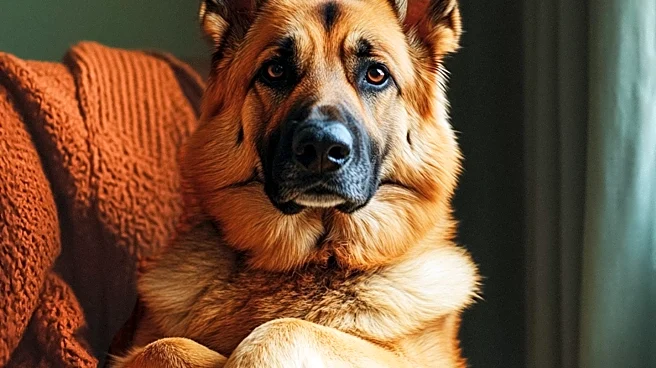What is the story about?
What's Happening?
Veterinary experts are raising concerns over increasing vaccine hesitancy among dog owners, driven by misconceptions that vaccines can cause autism in dogs. Despite scientific evidence debunking any link between vaccines and autism in both humans and animals, a significant portion of dog owners remain skeptical about the safety and necessity of pet vaccinations. Research from Boston University indicates that 40% of dog owners believe vaccines are unsafe, and 37% fear they could lead to autism in dogs. This hesitancy is particularly alarming as rabies cases in wildlife are on the rise, posing a potential threat to dogs if vaccination rates decline. Experts emphasize the safety and effectiveness of vaccines in preventing viral and bacterial diseases in pets, urging owners to consult veterinarians for accurate information.
Why It's Important?
The growing reluctance to vaccinate dogs could have serious implications for public health and animal welfare. Vaccines are essential in preventing diseases like rabies, which can be transmitted to humans. A decline in vaccination rates may lead to a resurgence of diseases that have been largely controlled, posing risks to both pets and their owners. The issue also highlights the impact of misinformation and political rhetoric on public perceptions of vaccines, underscoring the need for clear communication from health professionals. Ensuring high vaccination rates is crucial for maintaining the health and safety of pets and preventing costly treatments for preventable diseases.
Beyond the Headlines
The hesitancy among dog owners reflects broader societal trends in vaccine skepticism, influenced by misinformation and distrust in scientific research. This phenomenon raises ethical questions about the responsibilities of pet owners to protect their animals and the community. It also points to the need for improved education and outreach by veterinary professionals to counteract false narratives and promote informed decision-making. The situation serves as a reminder of the interconnectedness of human and animal health, emphasizing the role of veterinarians in safeguarding public health through animal care.
















